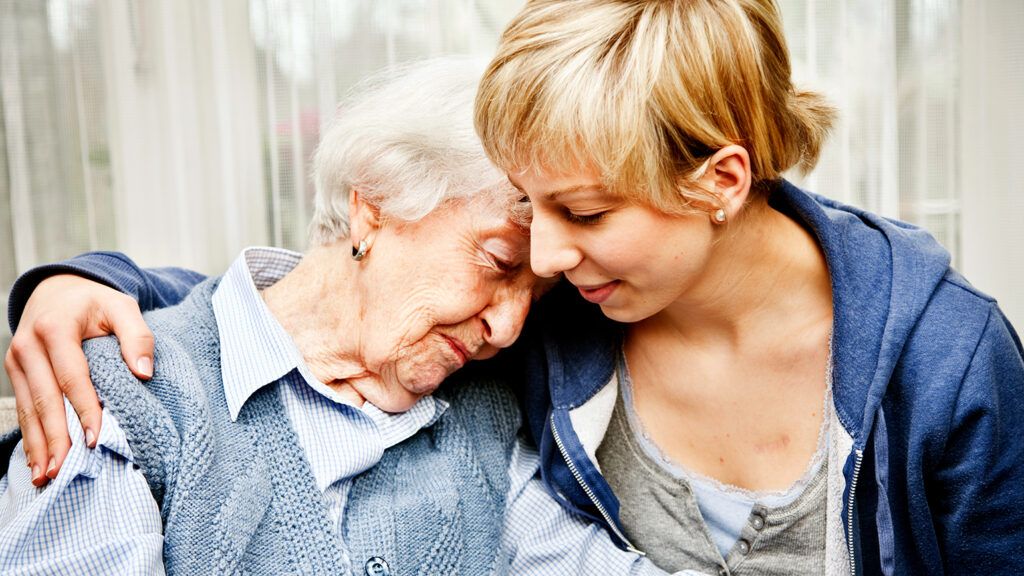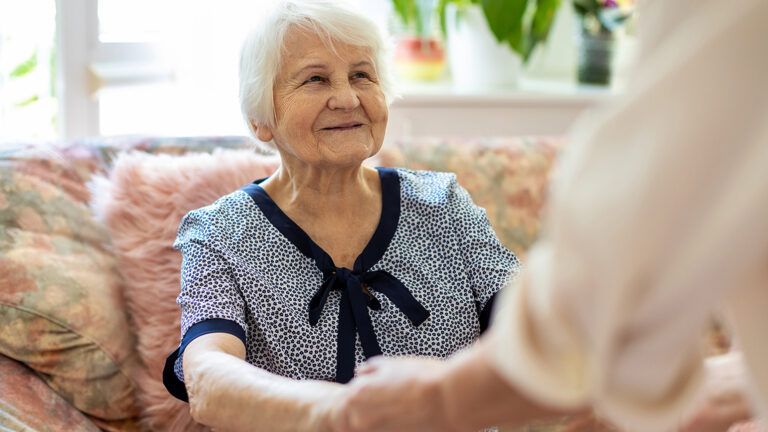The unresolved grief that B’ette Schalk experienced is common for a caregiver of a loved one with dementia, depression or another condition in which the person is present physically but changed or absent psychologically. There’s actually a name for it—ambiguous loss, a term first used by family therapist Pauline Boss. Home Instead Senior Care recently hosted a live chat with social worker Susy Favaro of the Banner Alzheimer’s Institute on how caregivers can cope with ambiguous loss. Some tips:
Put a name to it. Favaro believes the real culprit behind caregiver stress is the ambiguity of having a loved one who is lost only partially. “The grief of that leads to anxiety, ongoing strain and confusion,” she says. “It affects family relationships.” Identifying this as ambiguous loss helps caregivers see “they’re not crazy—it’s the situation that’s crazy.”
Use “both…and” thinking. Caregiving can involve holding two seemingly incompatible ideas at the same time. Instead of “either… or” extremes, try to think in terms of “both…and.” Your loved one is not here or gone; he is both here and gone. You need to take care of both your mother and yourself. Think about how you would fill in the blanks: “Due to my caregiving experience, I have both lost […] and gained […].”
Accept that good enough is good enough. “This is another Dr. Boss principle,” Favaro says. “Doing things perfectly isn’t possible with caregiving due to the uncertainty and unpredictability.” Try to balance control with acceptance. Accept that you can’t master the disease affecting your loved one, and take control of what you can: your thoughts, your reactions, tending to your own health.
Manage your mixed emotions. Caregivers often have two conflicting emotions simultaneously. For example, thinking I want this to be over and feeling guilty because that means the person you’re caring for would be gone. Guilt, anger, frustration—“it’s normal to have these emotions, but we don’t want to act them out,” Favaro says. That’s why it’s important to share your feelings, and the losses and changes you experience, with others: friends, a support group, a pastor, a counselor.
Imagine new hopes and dreams. “Think about what you can do to nourish yourself while you’re providing care and what you’d like to do in the future,” Favaro suggests. “Is there anything you can do now toward that? What would your family member want you to do in the future?”
For tools and resources on caring for yourself while caring for a loved one, visit caregiverstress.com.
For more inspiring stories, subscribe to Guideposts magazine.





